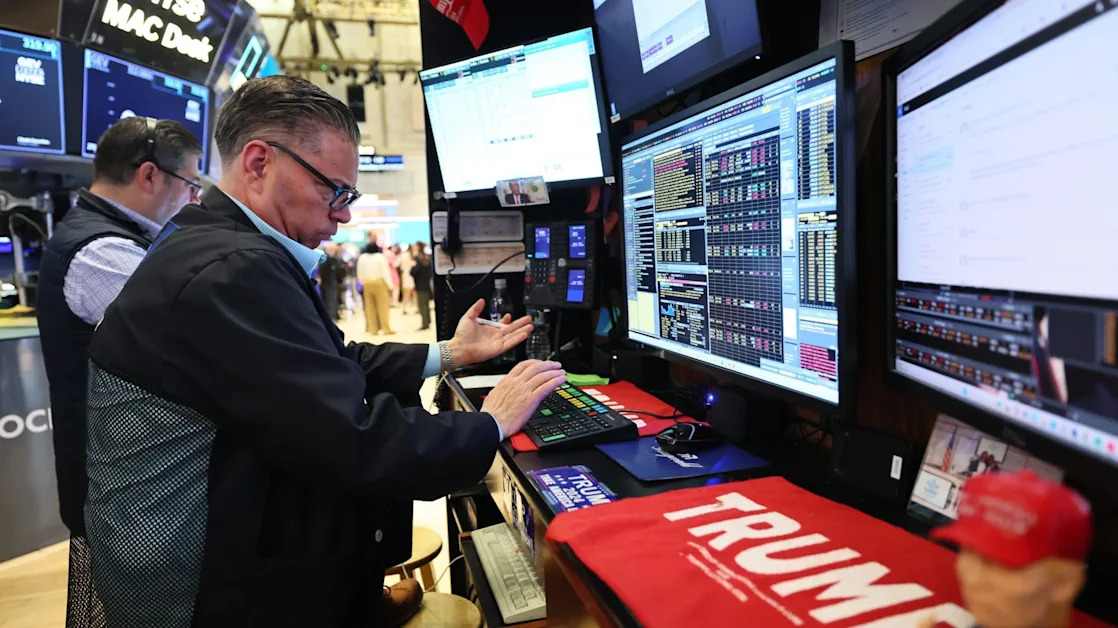
Global markets rally after Trump walks back Powell attacks and Bessent looks for China ‘de-escalation’
Stocks: The Dow, S&P 500, and Nasdaq all rose by more than 2.5% Tuesday, recovering most of their Monday losses. Gains for blue-chip Magnificent 7 tech companies like Apple , Amazon , and Meta drove the rise.
The rally was partly triggered by remarks from Treasury Secretary Scott Bessent at a closed-door J.P. Morgan investor summit in Washington, D.C., where Bessent told the audience that he expected the tariff fight with China to de-escalate because the standoff was unsustainable.
Trump double-tap: The investor optimism built off those remarks, first reported by Bloomberg, went into overdrive later in the day, after President Donald Trump told reporters in the White House that his China tariffs would “come down substantially, but it won’t be zero”, and that he had "no intention" of firing Fed Chair Jerome Powell , walking back a move markets feared would tank stocks, the dollar, and pretty much everything else. The safe haven of gold slipped after the remarks, while the dollar rallied (a little).
Traders were so giddy after the Bessent-Trump U-turn duet that not even a miserable quarterly report from Tesla could squash the rally. In its report after market hours—the first from one of Big Tech's Magnificent 7—Tesla reported automotive sales tumbling 20% year-on-year, to $14 billion, and a nearly 40% drop in net income to $409 million, far below the $600 million estimated by Wall Street.
Less DOGE, more Tesla: Tesla shares were up 6.3% in premarket trading Wednesday, however, likely spurred by the company announced plans to launch its anticipated Model Y by mid-2025, along with robotaxis in Austin in 2026—and Elon Musk's pledge to cut his DOGE work to only one-to-two days a week and spend more time righting the Tesla ship from the damage Trump's tariffs and his own political work have caused it.
But not all good news: The IMF's World Economic Outlook report , released Tuesday, slashed its growth forecasts for the U.S., China and most other countries because of the tariff war. It now has the U.S. economy growing 1.8% in 2025, down from 2.7% in its January forecast.